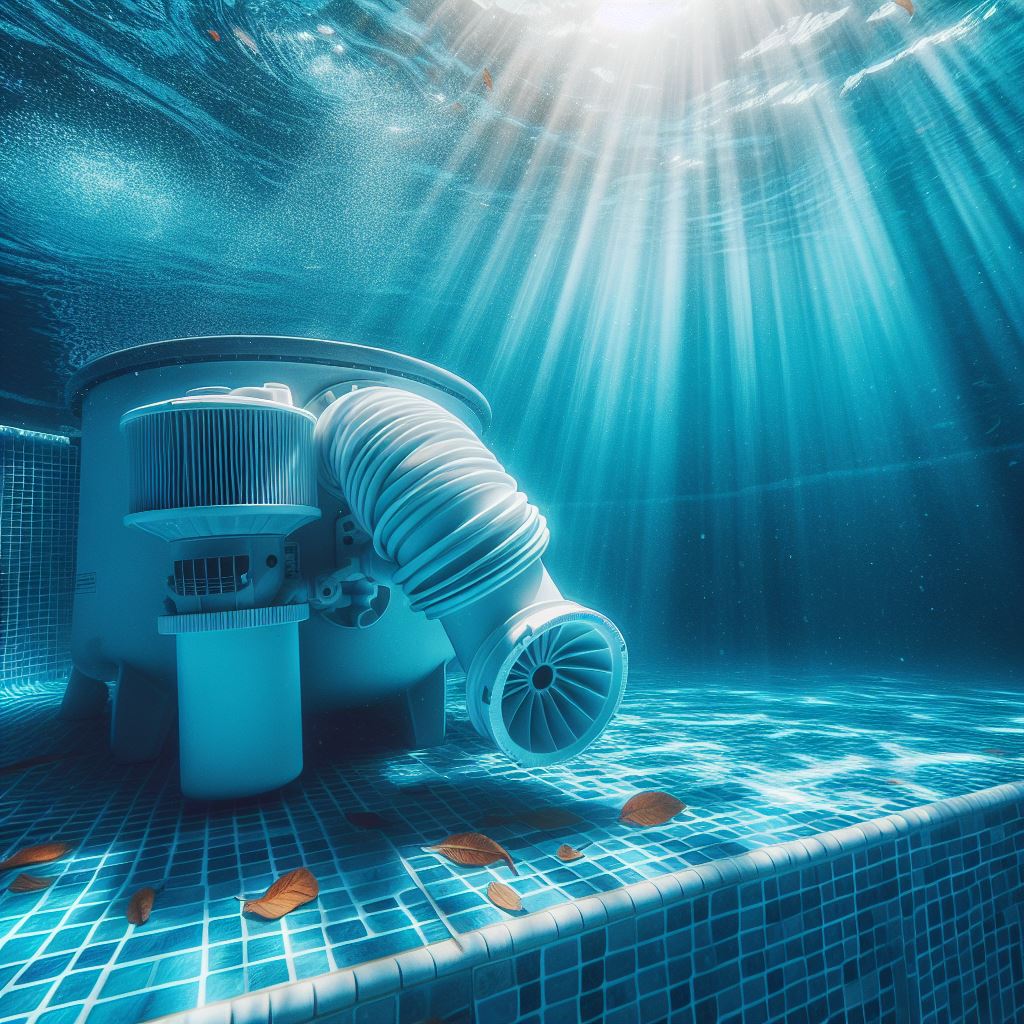A swimming pool is a fantastic addition for family fun and relaxation, but without proper maintenance, it can quickly become a breeding ground for bacteria and a source of water pollution. Correct use of a filter pump is crucial for maintaining clean pool water. This article will detail how to keep your pool clean and safe through effective use of and maintenance for your filter pump.

Why Does Your Pool Need a Filter Pump?
A filter pump is essential equipment for maintaining the quality of your pool water, and its role is indispensable.
Removing Dirt and Debris
Pools can easily accumulate various debris such as leaves, insects, and other large impurities floating on the surface. The filter pump effectively removes these large particles from the water, preventing them from settling at the bottom and causing sludge and algae growth. The filtration system maintains water cleanliness through continuous circulation, ensuring these materials do not re-enter the pool.
Even Distribution of Chemical Disinfectants
Disinfectants used in pools, such as chlorine, must be evenly distributed to be most effective. The filter pump circulates the water, allowing the chemical disinfectants to mix evenly throughout the pool, effectively killing bacteria and viruses in the water, and ensuring the sanitary safety of the pool water. This process also helps reduce the total amount of chemical disinfectant used, thereby lowering long-term maintenance costs.
Best Practices for Choosing and Maintaining Filter Pumps
Proper selection and maintenance of your filter pump are crucial for the long-term health of your pool.
Choosing the Right Size Filter Pump
The size of the filter pump should be based on the capacity of your pool. A pump that is too large or too small will not clean your pool efficiently. For example, a pool with a capacity of 75 cubic meters requires a filter pump that can handle at least 18.75 cubic meters per hour to ensure the entire pool’s water is cycled every 4 hours. Choosing the right pump and filter not only improves efficiency but also reduces energy consumption.
Maintaining Your Filter Pump
Regular maintenance of the filter pump is key to ensuring its efficient operation. This includes cleaning the filter, checking the pump’s operational status, and ensuring there are no clogs or mechanical failures. Reducing use during the winter but maintaining periodic operation can prevent issues that may arise when restarting after a long shutdown.
Comparing Sand Filters and Cartridge Filters
Choosing the right type of filter is equally important for maintaining pool cleanliness.
Sand Filters
Sand filters are a widely used pool filtration system suitable for pools of all sizes. They filter impurities in the water through a layer of sand, capturing smaller particles and providing a more thorough cleaning. Although they require regular backwashing and sand replacement every five years, their maintenance is relatively simple, making them a cost-effective long-term solution.
Cartridge Filters
Cartridge filters use one or more cartridges to clean the water and are particularly suitable for small, low-maintenance pools. They are easy to install and replace but have limited filtering capacity and are more suited for filtering large particles. For environments that require frequent replacement of the filter medium, they may not be the most economical choice.
By understanding and applying these key filtration techniques and maintenance strategies, you can ensure your pool remains in optimal condition, providing a safe and clean environment for your family. Investing in an efficient filtration system and regular maintenance will keep your pool valuable and functional in the years to come.


